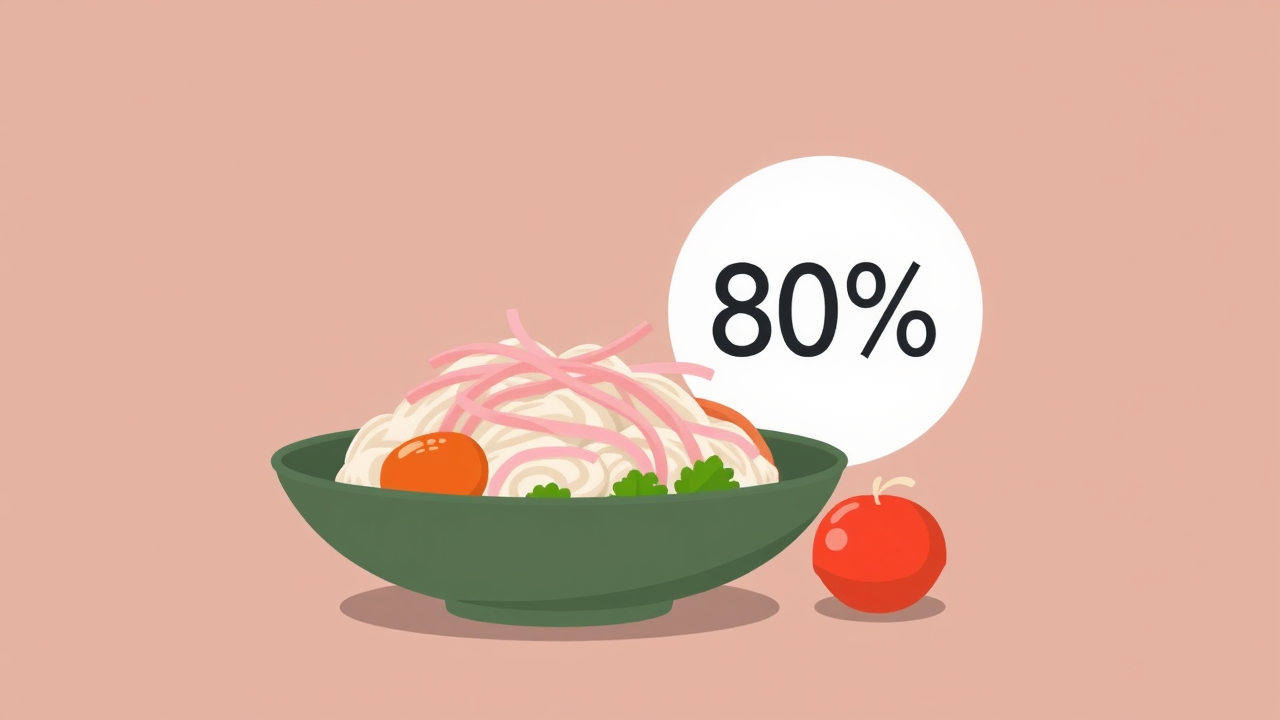The Japanese eating philosophy known as hara hachi bu encourages people to stop eating when they are around 80 per cent full. Rooted in Confucian teachings, this practice is followed by some of the healthiest and longest-living populations in the world. Recently, it has attracted interest as a weight-loss strategy. However, hara hachi bu should not be viewed as a restrictive diet. Instead, it promotes mindful eating, awareness, and gratitude at mealtimes. Although research specifically on this philosophy is limited, available evidence suggests it may reduce daily calorie intake, support lower body weight, and align with healthier meal choices, such as eating more vegetables. The practice shares principles with mindful and intuitive eating, which help people connect with their body's hunger and fullness signals. Beyond weight management, hara hachi bu encourages a sustainable and balanced relationship with food, making it relevant in modern life where many eat while distracted by screens.

Health Benefits and Research Findings
Studies on hara hachi bu are limited, as most research examines overall dietary patterns in regions where the practice is common rather than the 80 per cent rule alone. Evidence shows that this approach can lower daily calorie intake, reduce long-term weight gain, and lower average body mass index (BMI). Men following hara hachi bu tend to choose healthier meal patterns, including more vegetables and fewer grains. The philosophy shares similarities with mindful and intuitive eating, both of which improve diet quality and reduce emotional eating. Beyond weight loss, hara hachi bu offers a gentle, sustainable way to support long-term health changes, helping prevent weight regain often seen with traditional diets.
Practical Tips for Mindful Eating
To practice hara hachi bu effectively, check if you are truly hungry before eating and distinguish physical hunger from emotional or habitual eating. Eat without distractions like screens, which disrupt fullness cues. Slow down and savour each bite to recognise when you feel satisfied. Aim to feel comfortably full rather than stuffed. Sharing meals fosters connection, a key to longevity. Ensure meals are nourishing and rich in vitamins, minerals, and fibre. Practice self-compassion and avoid viewing this philosophy as restrictive. It may not suit athletes, children, older adults, or those with specific nutritional needs. The practice focuses on tuning into your body and honouring hunger without overindulgence.
Source: Link
